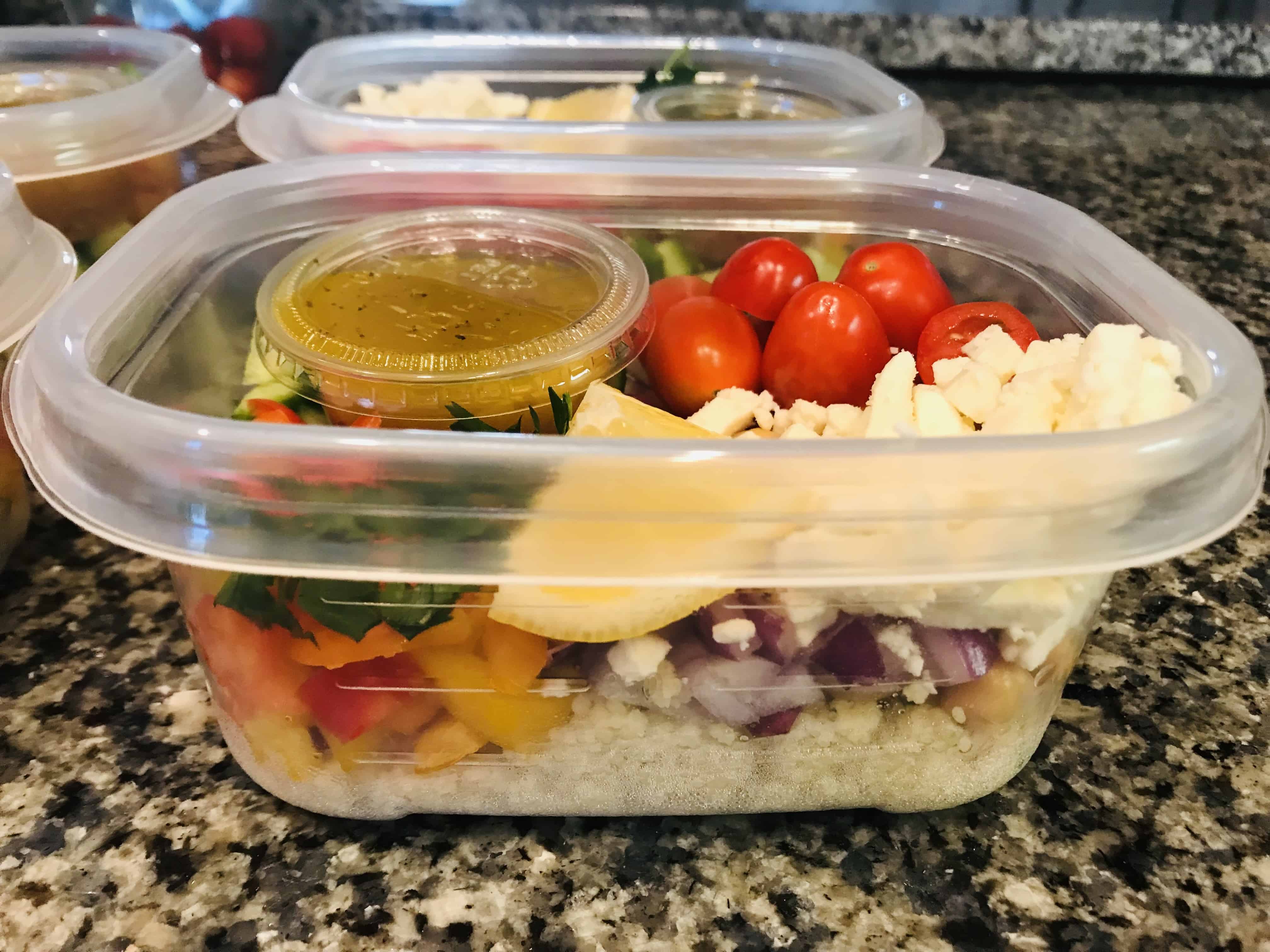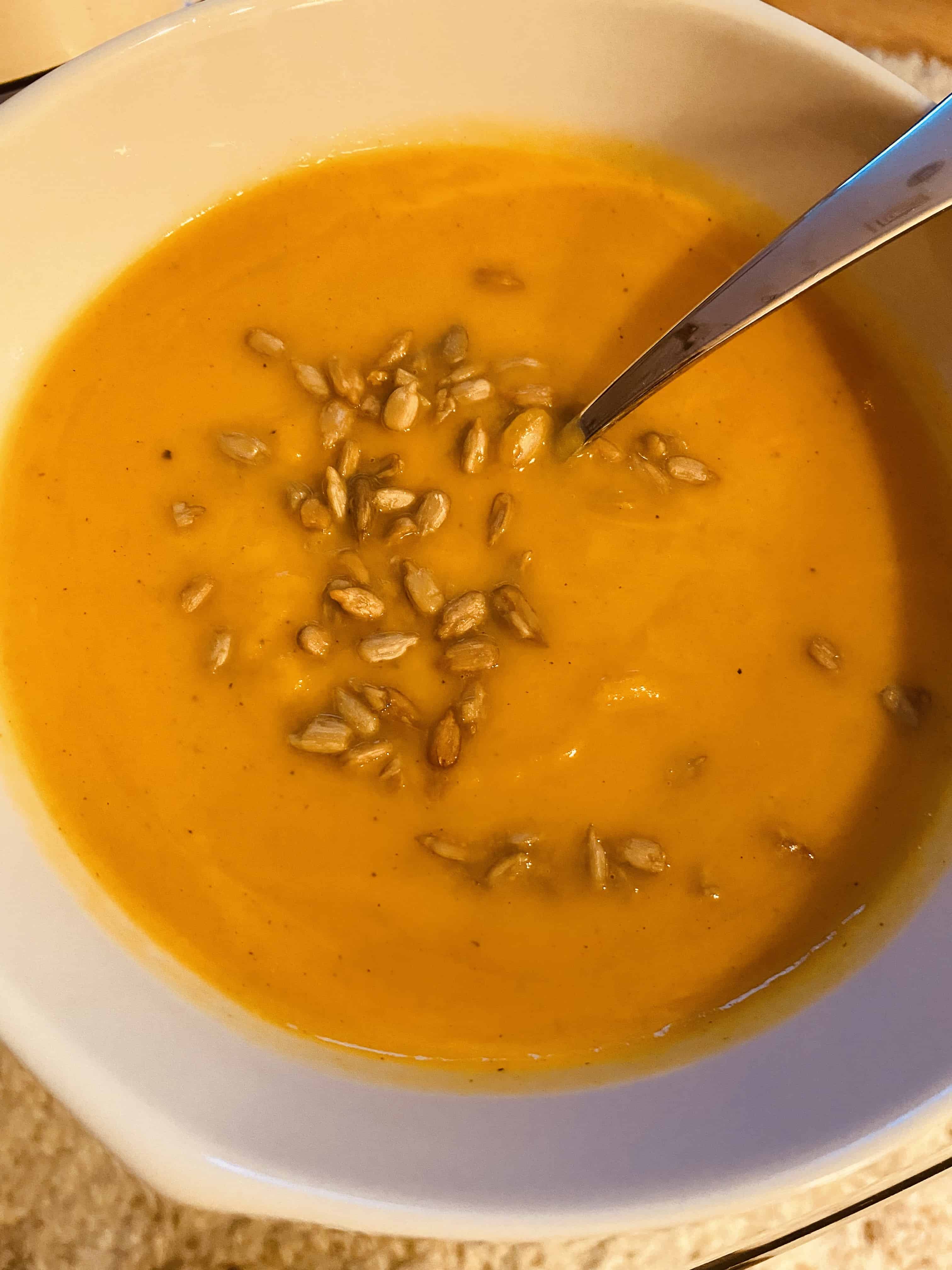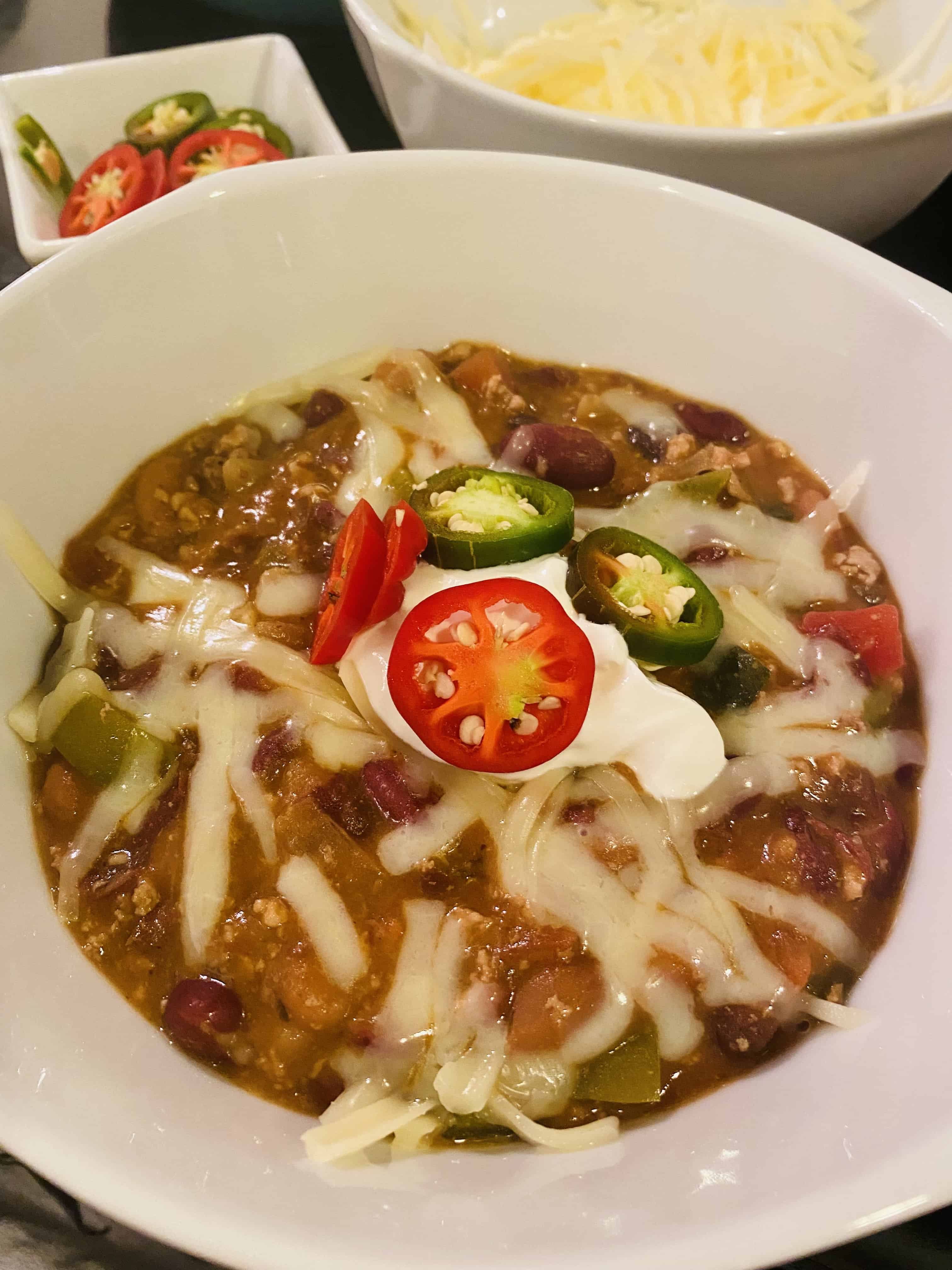If you are starting out with prepping your meals, you may have already read many recipes, how-to posts, photos and accounts of people with fridges and freezers full of meals ready to go. And you may be thinking there’s no way I can pull that off. I’m here to tell you that while some people are amazing, professional, meal preppers, most of us are celebrating when we remember to plan a breakfast, lunch and dinner that we don’t hate. Here are six truths about meal prep that I’ve learned over the years.

1. Choose one to sacrifice: time, healthiness, or money.
While it is possible to find a good deal or a quick strategy for some prepping (let me know your tips and tricks in the comments), most of the time I find that I have to give up at least one to get through my week of meals. For example, the healthiest choices often include making a dish from scratch, say chicken broth for a soup. That is also cost effective, as you’ve already bought the chicken and are just boiling the bones, but it takes a lot more time than buying boxed stock. If you buy an item pre-made, for example a rotisserie chicken, it saves you time, it doesn’t cost that much, but it is going to contain more fat and salt than if you roast a chicken yourself (unless you’re the type to rub butter under the skin!) so you are sacrificing the healthiness of the meal. Another example: while it is cheaper to buy a large container of yogurt, and it is just as healthy as the smaller portions, it will take you time to both spoon out the yogurt and wash the dishes of your own containers. You may be willing to pay a few more dollars for the grab and go nature of the single cup yogurts for breakfast and fewer dishes to wash.
2. Speaking of washing, there are going to be a lot of dishes.
You are going to need more meal prep containers than you think. Meal prepping includes portioning out your leftovers into single serving containers. Those get bulky in the sink or fill up the dishwasher pretty quickly throughout the week. You want a plan to stay ahead of this. For me, it’s making sure the dishwasher is near empty for the start of the week, so I don’t start out on Monday putting my breakfast and lunch dishes from work in the sink. I know I will stay on top of the dishes throughout the week if I start out strong.
3. If you didn’t love it for dinner, you aren’t going to want to eat it two more times for lunch.
That’s ok – have a back up plan. I keep enough canned goods in the pantry to make a quick pasta salad as a backup lunch. I usually have some veggies in the fridge to add, but I always at least have some small pasta, orzo or quinoa, and a combination of canned tuna, black beans, chickpeas, corn, olives, etc. so I can make a last minute pasta salad when I either don’t have time or I don’t like what I originally had planned. On my worst last minute days, I pull out a few slices of bread from the freezer and make a peanut butter and jelly sandwich for breakfast or lunch. I enjoy it as a throwback to a childhood favorite, and it keeps me fed until I can get my meal plan back on track.
4. Some weeks you won’t want to eat anything you make.
There is such a thing as meal prep burnout, especially if you find yourself eating the same things over and over. Figure out what foods you love no matter what, or can get you past this hump and freshen your view on food again. For me it’s tacos/burritos – there are so many varieties but I love any combo of meat, beans, and cheese wrapped in a tortilla. I also like the past salad I described above. It’s a quick template meal I can create with either whatever I have or a new flavor combo to freshen up my meals. Sometimes I need to switch to cold foods for lunch instead of leftovers because I get tired of the constant microwaving. These are my strategies, which may or may not work for you. Meal prep includes a lot of personal decisions. Just like the backup plan when you don’t like what you cooked, have a few go-to favorites that will help you get out of that bigger rut.
5. Your freezer is your friend or the place where your meals go to die a long, slow freezer burn death.
When I was growing up, food went in the freezer without thinking about a plan on when to take it back out. When I first started meal prepping was when I realized it was normal to put food in the freezer for just a couple days before you took it out again. If you are cooking on Sunday for the whole week, some food has to go in the freezer or it won’t last until Thursday and Friday. If you are cooking for one or two people and still want to buy in bulk to save money, portioning out meat to freeze when you buy it and taking a little out every week is a great strategy. Similarly, if you are short on time and don’t mind a simpler taste, roasting chicken and pairing it with frozen mixed vegetables is a quick prep. A big bag of veggies is cheap and lasts a while. You can dole them out and let them thaw in the fridge and heat up with the chicken when you’re ready for lunch.
6. There is no one right way to meal prep.
Some people live out of their freezers. Some can’t stand the microwave but still need to plan meals for the week. Everyone has a different amount of time, money, and interest (or skill!) in cooking, and there is a way to meal prep and meet your food goals in a variety of ways. Like most things in life, there is no one right answer. You can use a combination of strategies and approaches that work for you, depending on your situation. I’ve approached prepping my meals in a variety of ways at different times and for different reasons. When I was in grad school and focused on getting to the gym, if I didn’t have all of my food cooked on Sunday night and ready to heat up all week long, I couldn’t meet all of my other goals. Now I have more time in the evening and I am trying to eat more foods from scratch, so I focus on prepping breakfast and lunch, but I have time to cook dinner a few nights a week. Both methods are meal prep. The important part to keep in mind is your personal goal and preferences, and planning something that will work for you- you cannot meal prep without a plan. How you execute that plan is up to the schedule you have, the meals you wish to prepare, and your preferences.


